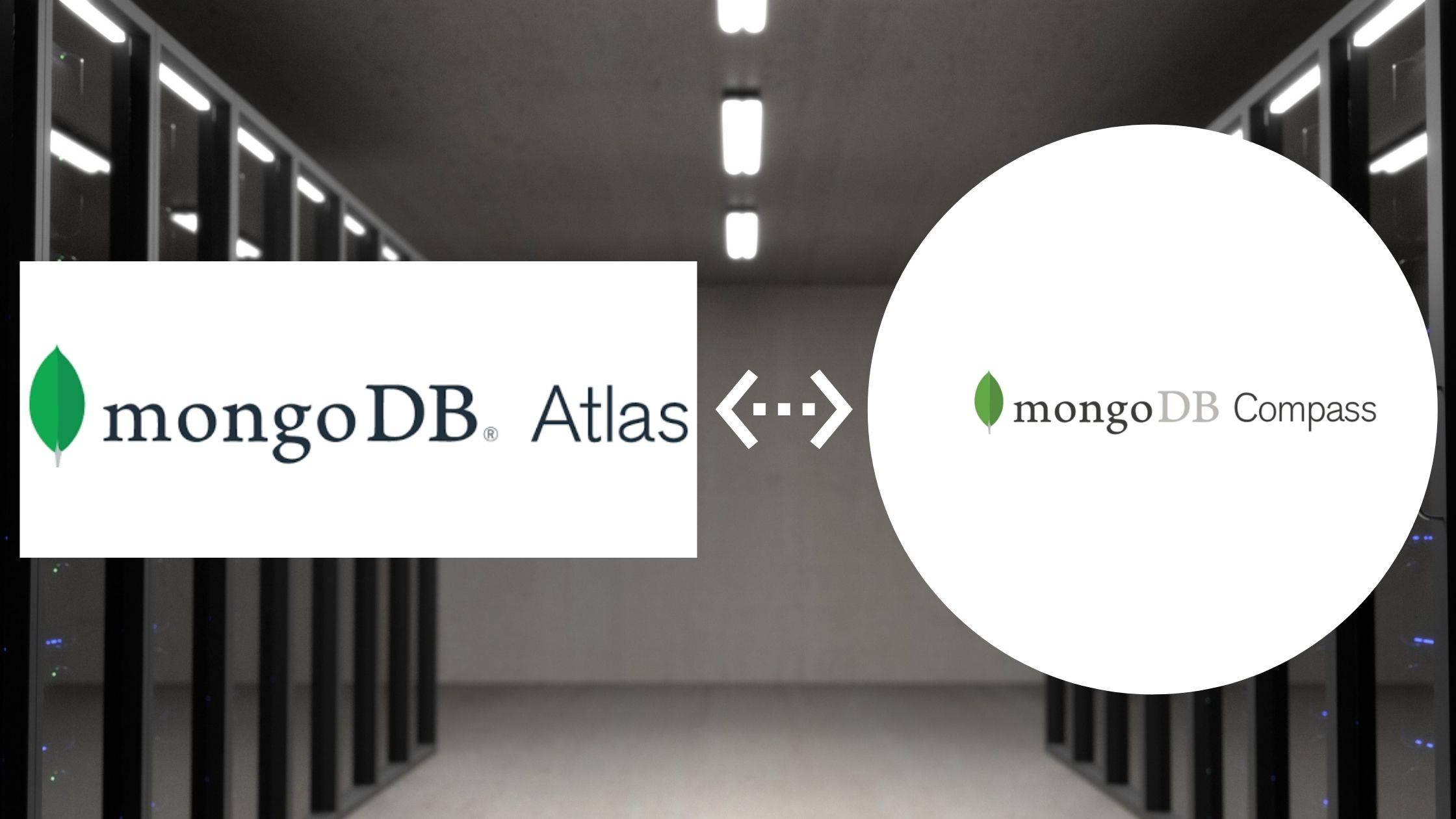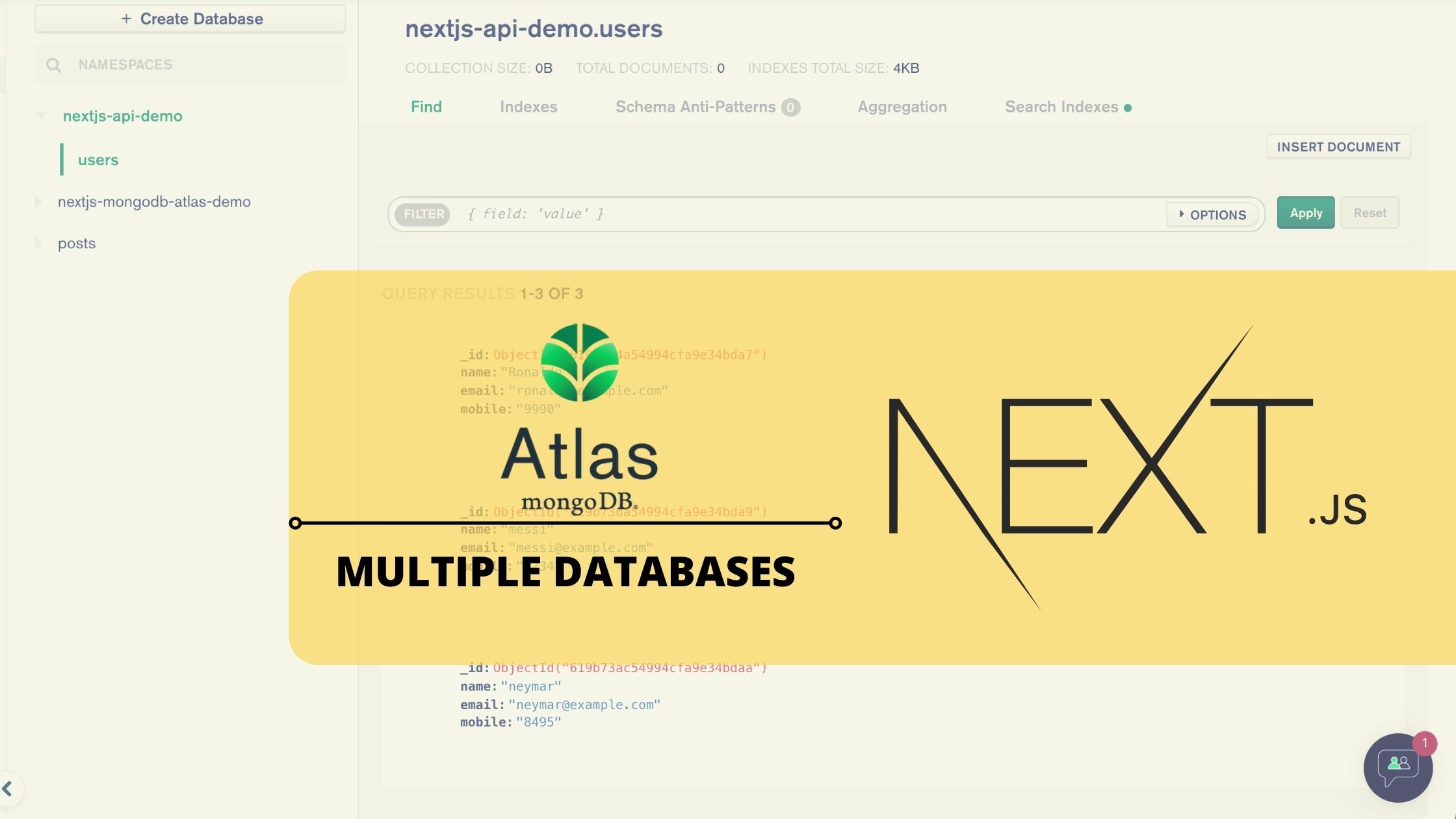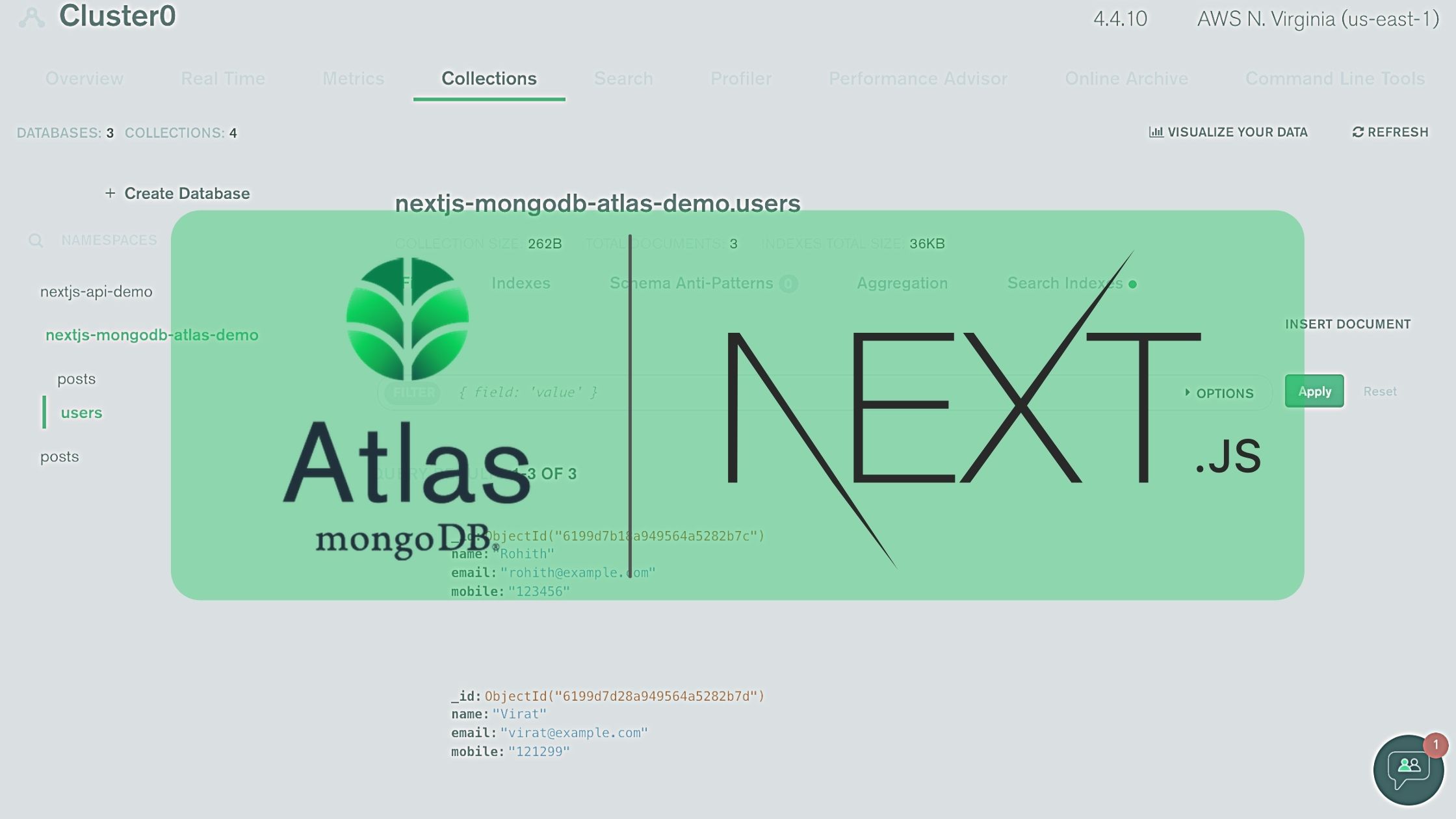Choosing the right database program is essential for the performance and scalability of our project. Here we are going to discuss a document-oriented database program MongoDB and the benefits of using it in our project.
What is MongoDB?
MongoDB is a high volume data storage database that works in a document-oriented NoSQL form. It is an open-source Database Management System (DBMS).
One of the most popular DBMS we have been using is MySQL. The popular content management systems like WordPress, Drupal etc. are using MySQL as defualt.
But nowadays the trend is changing. React, Express.js, and other JavaScript frameworks and libraries are getting popularity. NoSQL database management systems also grow with it.
Now, MongoDB a nonSQL database management system is popular among developers.
Who created MongoDB?
There was a team of three developers who created and founded MongoDB; those three developers were Eliot Horowitz, Kevin P.Ryan, and Dwight Merriman. MongoDB was initially released on 11 Feb 2009, and this database management system is written in C++, Go, JavaScript, and Python.
Some facts about MongoDB
Here we are going to have a look at some facts about MongoDB that not every MongoDB user knows.
- Do you know that MongoDB gets installed without any authentication? Yes, there is not authentication pre-setup, but you can add several authentication methods such as user ID/password and many more.
- The following fact is an advantage of MongoDB, which is that MongoDB is one of the best database management system. There are several other DBMS that start showing up errors and lags when they are holding high-end data, but in the case of MongoDB, you will notice that it starts working better while holding work under pressure.
- MongoDB has a highly specialized geospatial feature, so if you are thinking of creating an app that contains a locations based feature, then this is the best DBMS to use. As with MongoDB, you would be able to create location finding, tracking, location-based event tracking, and many more such applications.
- The next fact that not everyone knows about MongoDB is that it can help you create replica sets of data efficiently, moreover, it is highly efficient and smart with the help of which it can easily handle replica operation failures.
- MongoDB can easily handle document storage databases over multiple servers. Although several such DBMS programs can work over multiple servers, MongoDB offers highly efficient performance.
- With the help of MongoDB, as you may know, that it uses JSON based document storage system. With the help of which you would be able to integrate your app with other platforms easily. Some of those platforms are YouTube, Google Maps, and many more.
Features of MongoDB
Comparing the SQL DBMS systems, MongoDB offers a lot of features. Let us have a look at the features offered by MongoDB.
1. Ad-hoc queries system
The first and most crucial feature because of which everyone loves working with MongoDB is its Ad-hoc queries system. When you are designing something with MongoDB at that time, you are entirely unaware of the queries that you can face. So for solving this issue, MongoDB created an Ad-hoc queries system. Now with this system, you get to know about every following query in the design of a database and all these things in real-time. Hence, you can make changes to those queries and improve it.
2. Flexibility
The second feature in this list shows how flexible MongoDB is. As it offers its users a database without any schema and the main benefit of it is that you would be able to add as many fields in your database in which you can add as much content as you want of whatever size. In short, we can say that MongoDB is a highly-flexible database management system.
3. Performance
You must have noticed that in other such database management systems, you are offered to place your data in the form of rows and columns, and you can add some specific values in it.
But in the case of MongoDB, with the help of NoSQL support, you are offered fields instead of rows and tables. In these fields, you would be able to add different forms of data.
Moreover, you can also combine the same type of data in MongoDB so that you get all your single type data at the same place.
Every data you store would be provided a unique key id with the help of which you would be able to access that particular data easily.
If you have ever used DBMS before then, you must be aware of how vital indexing is for the enhanced performance of your search queries.
In the case of MongoDB, you would be able to index any field into primary and secondary indices. With the help of this, you would be able to get features such as faster query searching with which you can get higher performance than ever.
4. Replication
Replication is another feature of MongoDB. This makes it for developers to fall in love with this database management system. With the help of Replication in MongoDB, you would be able to distribute data into various machines.
You can put them in the form of primary and secondary. So when the primary node is unable to reach or work out, you would be able to fetch your data through the secondary node made.
Whenever you are unable to use your primary node at that time, the internal system converts secondary to the primary system.
5. Aggregation framework
The feature you would be able to get with MongoDB is the aggregation framework. With the help of this feature, you would be able to get a single result after several operations have been performed on that data. It will help in enhancing the overall usability.
6.GridFS
I am sure that you must not have any such features in other database management systems, and that is GridFS. With the help of this feature, you would be able to store and retrieve files quickly, and these files would be those that are more significant than 16 MB. With the help of GridFS, those large documents would be divided into several chunks of 255kb and more.
When you are using MongoDB regularly at that time, you would have got some real big datasets that are quite difficult to arrange them in a single database only. So MongoDB team created a sharding feature with the help of which you can distribute large datasets into smaller collections that are called shreds. With the help of sharding management of data will be highly efficient and easier to access.
Not everyone is aware of it, but MongoDB is an open-source database management system. Which states that it will have a large and helpful community. Moreover, MongoDB offers a very high-performance database system comparatively better than other such systems.
Who is using MongoDB?
Although MongoDB is widely used all over the world, if we have a look at some of the most popular companies that use MongoDB are as follows
The actual list is endless, but these are some of the most famous companies and regular users of MongoDB.
Why is MongoDB best?
There are several reasons, which makes MongoDB the best of it’s kind, and here are some of those reasons
1. NoSQL
The first reason that makes MongoDB the best is that in other database management systems, you must have noticed that they offer you a database system managed in tables and rows, but with MongoDB, you would be provided fields with the help of NoSQL.
With the help of these fields, you would be able to add several different types of data within these fields. You can even manage to get the same kind of data into single fields for better and easy access.
2. A highly expressive query language
The second reason that makes MongoDB the best is it’s highly expressive query syntax. Other such DBMS use SQL for their query language, but in the case of MongoDB, you would be able to use a more enhanced and expressive NoSQL query language.
3. Easy to learn
The third reason that makes it the best is that it is easy to learn as if you are new to it, then you would be able to learn it quickly with the help of a quick start guide.
4. High performance
The biggest reason because of which MongoDB is so famous, and it is its performance. Every user of MongoDB just loves its performance, and it does not lag while handling more massive datasets.
5. Offers shards
MongoDB offers shards with the help of which you would be able to store larger files in the form of 256 KB small shards.
Benefits of using MongoDB in our project
Here is the list of top 10 benefits of using MongoDB in our project
1. Simple to Setup
The overall setup and installation process is so simple that if you are new to DBMS. Even then, you would be able to operate it efficiently with the help of a quick start guide.
2. Schema-free
It is a schema-free database, which means that you can easily store different data types in it. Moreover, you can even combine the same kind of data with the help of which you can easily access it.
3. Offers data replication
MongoDB offers a data replication feature with the help of which you can replicate data sets and can create or manage in groups such as Primary and Secondary. In case the server shows some error with primary nodes, you would be able to access the dataset with the help of secondary nodes.
4. Faster Response
As you all know that MongoDB uses NoSQL queries with the help of which you would be able to get faster response and easy access.
5. Auto sharding and auto-failover
In the case of large datasets, when there is a chance that the server can be disconnected at that time, the system itself manages everything with the help of auto sharding and auto-failover.
6. Ad-Hoc queries
When you are designing a database at that time, you face several queries, so with the help of Ad-Hoc queries, You would be able to know what type of queries you can face with that dataset in the future and hence can get rid of it.
7. No compatibility issues
MongoDB offers schema-free migrations, and hence, no compatibility issues arise with it.
8. Horizontal scalability
If horizontal scalability is in your priority list, then MongoDB is the best option for you as it offers its users efficient horizontal scalability.
9. Open-source
MongoDB is open-source and free, so with the help of this feature, you would be able to add customizations according to your requirements.
10. Professional technical support
If you ever face any technical issues with MongoDB, then you can easily access professional technical support for your help.
11. Community support
MongoDB has a huge community base and so that using MongoDB in your project won’t make to stuck in an error/bug. Because the community will help you to solve it.
Pros & Cons of using MongoDB
Every technology has it’s positive and negative sides. Let’s discuss some pros and cons regarding MogoDB.
Pros
- If you are finding a type of DBMS with which you can easily manage any database, then with the help of schema-free support, you would be able to do that.
- You can create several replicas of datasets. With which you can create primary and secondary datasets, so when the primary set is unable to access at that time, the second set will be converted into the primary set. Hence, you would be able to access your data.
- If you are finding a type of cheaper DBMS, then MongoDB is the only one on the list as it’s completely free, and you can run it on over Linux devices also.
Cons
- You get less flexibility with querying issues.
- The overall data about a product is less. We can say not the proper information available.
Alternatives to MongoDB
Although you get the best features out of MongoDB and its user will never think about moving to another alternative. Because we get a lot of benefits when using it in our project.
But there are some alternatives of MongoDB available which are enhancing their products and services, let us have a look at those alternatives-
- RethinkDB- The first on the list is RethinkDB, and it is a scalable DBMS system, the basic usage of it is to create real-time applications.
- OrientDB- The second on the list is OrientDB, and it is also an open-source NoSQL database system like MongoDB. The main focus of this DBMS software is on the scalability and performance of its system.
- CouchDB- The third on the list is CouchDB. Data in this DBMS is stored in the form of the JSON format. With the system, you can even run single logical database servers easily.
Summary
We have reached the end of this article. We have discussed a number of benefits of MongoDB. Although our main focus was to let you know how MongoDB is beneficial if you use it in your project and for that, we have gathered several points. Moreover, we also had a look at some alternatives of MongoDB, which are somewhat the same as MongoDB and are enhancing their products and services regularly.





Be the first to reply